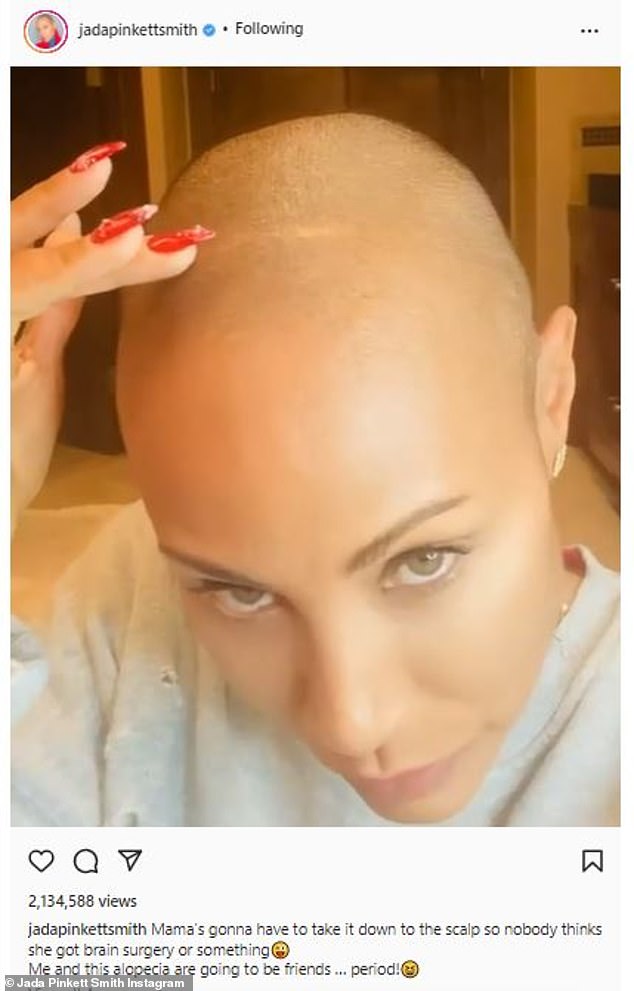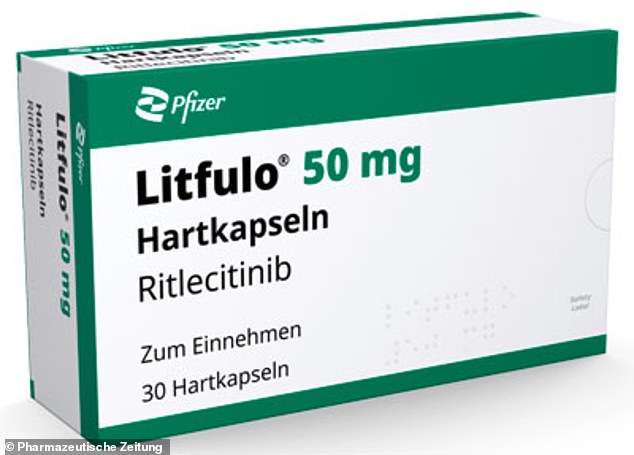Thousands of adults and teenagers with severe hair loss will benefit from an innovative treatment that can cause hair to grow back in just six months.
In what has been described as a “monumental day” for sufferers of alopecia areata, the medicines watchdog has approved a drug that reverses the condition in one in five patients.
Characterized by bald patches, this is the first routine treatment recommended for use on the NHS.
One of the most common causes of hair loss is caused by the body’s immune system attacking the hair follicles.
Ritlecitinib is part of a family of drugs known as janus kinase (JAK) inhibitors, which work by weakening the immune system.

Last year, Louis Theroux revealed that he had shaved his eyebrows in response to losing facial hair due to a form of alopecia. Posting photos and a video of him shaving his face on Instagram, the documentarian joked: “I’d like to know how I’m supposed to continue a career based largely on raising and lowering different eyebrows without any eyebrows at all.”


American actress Jada Pinkett Smith also suffers from this disease, which rose to global fame when presenter Chris Rock joked about it at the Oscars and she was slapped on stage by her husband, Will Smith.


Ritlecitinib is part of a family of drugs known as janus kinase (JAK) inhibitors, which work by weakening the immune system. Taken as a daily pill, it works by reducing the enzymes that cause inflammation and subsequent hair loss in the follicle. Made by Pfizer, it has been recommended by NICE as an option for the treatment of severe alopecia areata in people aged 12 years and over.
Taken as a daily pill, it works by reducing the enzymes that cause inflammation and subsequent hair loss in the follicle.
Made by Pfizer, it has been recommended by NICE as an option for the treatment of severe alopecia areata in people aged 12 years and over.
Sue Schilling, chief executive of charity Alopecia UK, said: “This is a monumental day for the alopecia areata community.
‘For too long, patients with alopecia areata have been without an authorized treatment option available through the NHS.
‘If new treatments are only available privately, it becomes a case of ‘the haves and the have nots’. This latest recommendation from NICE will go some way to solving this problem.’
Results from a large study published last year showed that 13 percent of patients achieved 90 percent or more scalp hair coverage after 24 weeks of taking the drug, compared with 1.5 percent. percent of those who took a placebo.
Nearly half of those treated with ritlecitinib reported “moderate” to “great” improvement in hair loss.
About 2 percent, or 1 in 50, of the population will experience alopecia at some point in their lives, and about 1 in 4,000 will develop alopecia areata each year.
It can start at any age, but is most common in early adulthood and can cause hairlessness on parts of the body, including eyelashes and eyebrows, nose hair, and skin hair.
This leaves people more vulnerable to infections and reduces a person’s ability to regulate body temperature.
Hair follicles are not destroyed but made dormant, making it possible for them to grow back, and the extent and duration of hair loss can vary widely from person to person.


Thousands of people with severe hair loss due to alopecia areata will benefit from a new once-daily tablet to help treat the condition.
Last year, Louis Theroux revealed that he had shaved his eyebrows in response to losing facial hair due to a form of alopecia.
Posting photos and a video of him shaving his face on Instagram, the documentarian joked: “I’d like to know how I’m supposed to continue a career based largely on raising and lowering different eyebrows without any eyebrows at all.”
American actress Jada Pinkett Smith also suffers from this disease, which rose to global fame when presenter Chris Rock joked about it at the Oscars and she was slapped on stage by her husband, Will Smith.
The drug had been rejected on cost grounds in September last year, but has now been given the green light following negotiations, in which a substantial discount is understood to have been agreed.
Helen Knight, NICE’s director of medicines evaluation, said: “Our committee heard how severe alopecia areata can have a significant impact on people’s health and quality of life.
“I am delighted that we can now recommend this innovative treatment, the first time NICE has recommended a medicine for severe alopecia areata for use on the NHS.”
Lynn Clay, specialist care leader at Pfizer UK, said: “Alopecia areata can have a psychological impact on adults and adolescents living with the condition.
‘Today’s decision is an important milestone for eligible patients with severe hair loss due to alopecia areata to help them access treatment.
